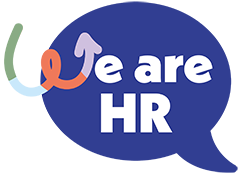Right now we are all experiencing rapid change and a high level of uncertainty. Some of these challenges are the biggest we will ever face in our lifetimes. When everything around us feels crazy, the only place we can go to navigate through it is by using our inner strength.
Everything probably seems chaotic right now, as we juggle working from home, childcare, our health, and the uncertainly about the future. Right now, we will be grieving (yes, grieving) for our old life, lamenting the new state our world is in and reeling from the shock of it all. The world we live in has changed fundamentally, no matter where we are.
One key skill we all need to draw on now more than ever before is our ability to think critically. Critical thinking is what helps us name our emotions and helps us to recognise the reality of where we are.
All of us are on a bit of a rollercoaster of up-and-down emotions – sometimes feeling dread and anxiety and other times finding some happiness and calm in the middle of it all. Even if you don’t consider yourself to be anxious normally, you will experience moments of it, and, if you are prone to anxiety, you’ll be feeling it even more strongly. It is worth remembering, this is a recognised process that we are all experiencing to some degree or another. We are all going through the stages of grief.
Remember, we’ll be experiencing these stages at all different times to those around us, and these stages are not necessarily linear, we can slip backwards as well as more forward. In simple terms the stages are:
- Denial: ‘this virus won’t affect us. It’s happening somewhere else, far away…’
- Anger: ‘you’re making me stay home and taking away my activities. I’ve had to cancel my holidays. I’ve lost my job. My income has dropped’.
- Bargaining: ‘ok, if I social distance for two weeks everything will be better, right? I can do that – hey, wait a minute – it may be longer than that. I’ll work out a plan and it will then be ok’.
- Sadness: ‘I don’t know when this will end. I am despairing because I can’t see my loved ones and my freedom is gone’.
- Acceptance: ‘this is happening. I have to figure out how to proceed. I have to integrate this experience into my new way of living. My life is changing and I am changing too’.
The key to remember is acceptance, which is where the power lies. We find control in acceptance as we think about all the things we can do – and choose to do – now amid uncertainty and fear, e.g. ‘I can work hybrid, I can work from home, I can commute safely into work. I can learn how to better manage my time working from home. I can learn new skills. I can start a different business. I can exercise online’.
With acceptance comes that opportunity to reset and refresh. Without those heightened emotions being in acceptance, there is the space and chance to think critically, to reframe the situation and see potential opportunities in it. It is by exercising our critical faculties at this time that we can start to regain some control of our own lives and move through and ultimately out of the grief process.
This article may resonate with many people as this sum up how I was feeling when I decided to launch the training arm of my business We-are-HR in 2021.
It took courage, lots of tenacity and collaboration with like-minded people. Those who share the same values of wanting to offer a quality experience for all learners, from the beginning to the end of the learner journey – with a unique focus on Quality, Well-being and Future Careers.
Having a team with a wealth of industry experience and know-how has helped us to ensure that we start with quality as we know that quality is sustainable!
I cannot stress how we have never compromised on our values and ethos which are our golden threads, and which continue to be at the heart of the business.
What we can promise is that our learners will begin to develop this critical thinking whist on our program as we all believe that resilience and flexibility are behaviours that all HR Professionals should compass and now more than ever before you will be expected to evidence this within the workplace.
By Natasia Hieber


